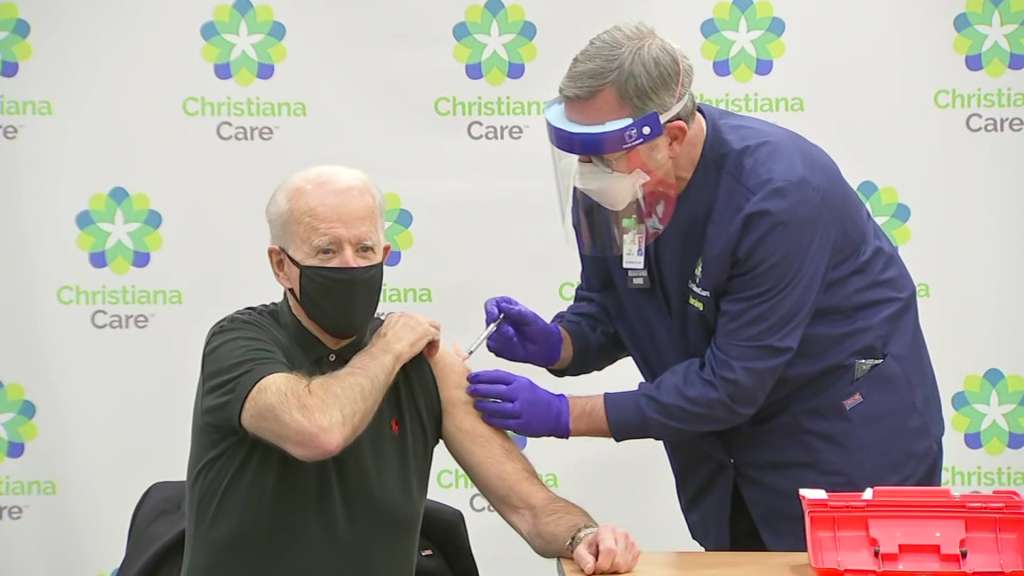NEWARK, Del. (AP) — President-elect Joe Biden on Monday received his second dose of the coronavirus vaccine, three weeks after getting his first one with television cameras rolling in an attempt to reassure the American public that the inoculations are safe.
Biden pulled off his sport jacket to reveal a dark, short-sleeve T-shirt underneath and said, “Ready, set, go.” Chief Nurse Executive Ric Cumin administered the Pfizer vaccine at Christiana Hospital in Newark, Delaware, close to president-elect’s home.
Scenes of the procedure aired on cable news moments after it occurred.
Biden got his first shot on Dec. 21 in a televised procedure. The virus has now killed nearly 375,000 people in the United States — about 60,000 more than when the president-elect got his first round of vaccination — and continues to upend life around the globe.
In brief comments to reporters after his shot, Biden said he has confidence in his COVID-19 combating team to hit ambitious vaccination-rate targets after he takes office on Jan. 20. He also called the current rate of thousands of people dying daily “beyond the pale.”
The Pfizer-BioNTech vaccine requires a second shot about three weeks after the first vaccination. For another vaccine produced by Moderna, it’s four weeks. One-shot vaccines are still undergoing testing.
Biden’s transition team has vowed to release as many vaccine doses as possible, rather than continuing the Trump policy of holding back millions of doses to ensure that there would be enough supply to allow those getting the first shot to get a second one. Biden’s goal is protect more people, more quickly, his team announced last week.
The plan would not involve cutting two-dose vaccines in half, a strategy that top government scientists recommend against. Instead, it would accelerate shipment of first doses and use the levers of government power to provide required second doses in a timely manner.
Like Biden, Vice President Mike Pence and other national leaders got pre-Christmas, first rounds of vaccinations. President Donald Trump did not, though he was hospitalized with COVID-19 in October and given an experimental monoclonal antibody treatment that he credited for his swift recovery. A Centers for Disease Control and Prevention advisory board has said people who received that treatment should wait at least 90 days to be vaccinated to avoid any potential interference.
Copyright 2024 The Associated Press. All rights reserved. This material may not be published, broadcast, rewritten or redistributed.

